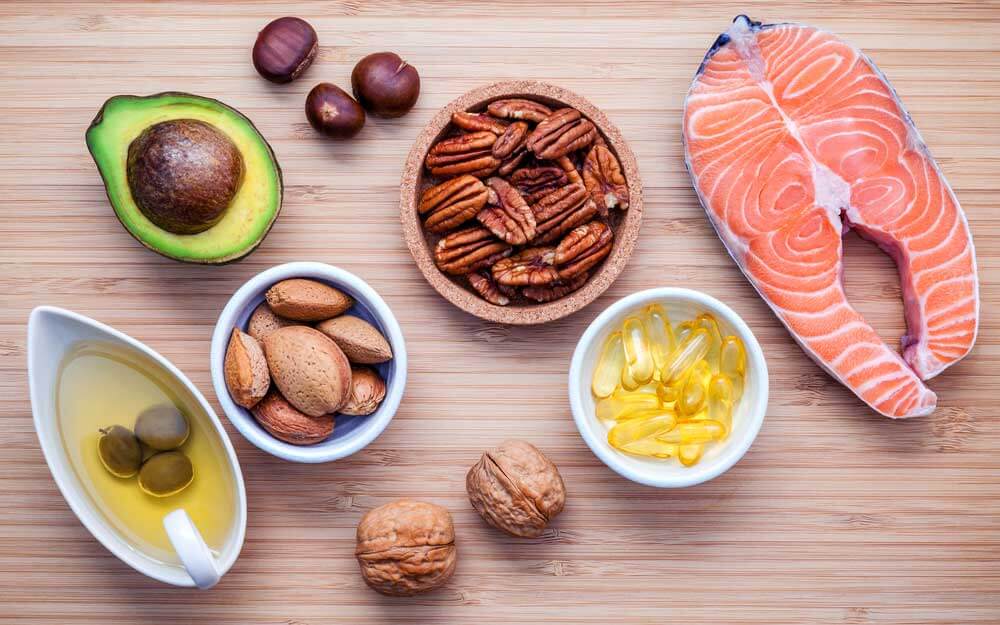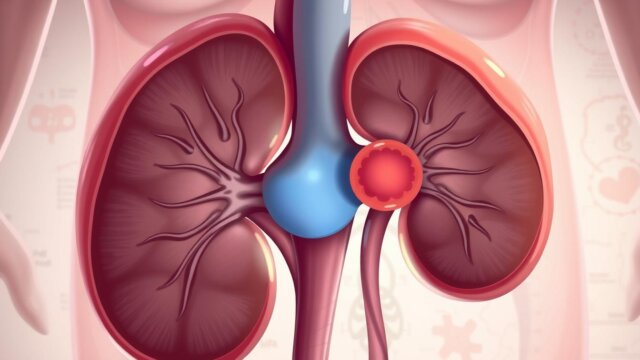FTC disclaimer: This post may contains affiliate links and we will be compensated if you click on a link and make a purchase.
DHA or docosahexaenoic acid is an omega-3 fatty acid that is very important for overall health and well-being.
According to research studies, DHA provides the physical structure for the human brain, sperm, testicles, and retina.
It also helps prevent and reduce heart disease, blood sugar, blood pressure, and lower cholesterol.
There are mainly two main types of omega-3 fatty acids:
Long-chain omega-3s are EPA (Eicosapentaenoic acid) and DHA.
These are plentiful in fish and shellfish. Algae usually contain only DHA.
The EPA DHA ratio is essential when evaluating foods’ health value. Diets that strike a balance between DHA and EPA are usually better.
Short-chain omega-3 fatty acids are ALA (alpha-linolenic acid).
These fatty acids are found in certain parts of plants like flaxseed.
Many bodybuilders and fitness models use ALA as part of their supplement regimen because it helps the body process its fat stores correctly.
What is DHA?
Docosahexaenoic acid, DHA, is a long-chain polyunsaturated omega-3 fatty acid. It is a structural and functional fat found in all body tissues.
Further studies also indicate that DHA consists of about 93% of all omega-3 fatty acids in the retina and 97% of all omega-3 fatty acids in the brain.
Many studies reveal that everyone, from infants to adults, benefits from an adequate supply of DHA. DHA plays an important role in the following:
- Development and functioning of the brain and central nervous system
- Helps in Psychomotor development (such as eye-hand coordination)
- Promote visual development and function
- Supports heart health
- Helpful in nerve signal transmission
There are thousands of studies evaluating the role of omega-3 fatty acids, and DHA specifically, on human health and nutrition.
Recent research is focusing on the important role of DHA in the following field:
- Mental and visual development
- Role during pregnancy and breastfeeding
- Serving nutrition for Infant and toddlers.
There is also exciting new research evaluating the possible effect of DHA in reducing the risk of certain neurological disorders. Much of this recent research is preliminary and additional studies will be needed to evaluate the effect of DHA.
Ideally, it would help if you were getting plenty of DHA from food with a healthy diet.
But for many reasons, including poor health and inconsistent eating habits, supplementation may be necessary.
DHA can balance out and temper the effects of eating trans fats and saturated fats as good fat.
Modern diets are usually filled with the wrong type of fat for body and brain health, so supplementation with DHA helps balance the ratio.
What is the best food source for DHA?
Our body produces DHA, but as we grow older, the DHA produced by our body lessens.
It is essential to maintain a food diet rich in DHA.
You don’t have to worry about the food that contains this nutrient. It’s not hard to find; eating fish like tuna and salmon, seaweeds, and seashells can give you enough DHA that the body needs.
Oily fish like mackerel, herring, salmon, and trout are the most concentrated sources of DHA. Other great superfoods are:
- Canola oil
- Soybeans
- Walnuts
- Wheat germ
- Pumpkin seeds
- Eggs
- Ground flax seeds
- Flaxseed oil
- Salba
Science-Backed DHA Health Benefits
Improve memory and learning
DHA (Docosahexaenoic Acid) is a physiologically-essential nutrient to provide optimal neuronal functioning.
One of the DHA benefits is aiding the development of the brain and neurological functions. DHA helps in the maintenance of the nerve structure and function.
A study shows that people with Alzheimer’s disease and dementia improve memory when given the right amount of omega-3 fatty acids.
DHA helps fill up the gap in the brain regions that are important for retaining memory.
Prevent Vision Disorder
The deficiency in DHA will lead to blurry vision or, the worst, loss of eyesight.
One study reported that a high intake of DHA decreased the risk of developing age-related macular degeneration, a major cause of blindness.
Further, one study reported a strong correlation between low DHA levels in retinopathy patients and the severity of their disease.
Moreover, one study showed that those who suffer from LCHADD (long-chain 3-Hydroxyacyl-CoA dehydrogenase deficiency), a rare genetic disorder with progressive vision loss, experienced improved or stabilized vision after receiving DHA supplementation.
Observations have suggested a role for DHA in other visual conditions; however, additional research is needed.
Visual and mental development of Infant
Many research studies have concluded that DHA is vital for optimal infant visual and mental development.
Moreover, developing infants cannot produce DHA efficiently.
So, the infant can receive DHA from the mother through the placenta during pregnancy and in breast milk after birth.
However, breast milk DHA levels are dependent on the mother’s diet. Because of a low DHA dietary intake, women reportedly have lower DHA levels in their breast milk than the recommended levels.
Moreover, according to research studies, higher levels of DHA in breast milk were also associated with the following abilities of infants:
- The ability of the infant to easily adjust to changes in surroundings
- Better sleep patterns of Infant
- Greater central nervous system maturity
- Improved psychomotor development
- Improved attention skills
- Increases child IQ
DHA for pregnant women and nursing mothers
DHA can also improve the health and well-being of pregnant women.
Moreover, DHA in Omega-3 Fatty acids has been proven to prolong pregnancy by an average of six days.
According to studies, it can help women carry the pregnancy to full term and avoid preterm labor or delivery.
Studies suggested that DHA has also shown great potential in preventing pre-eclampsia.
Pre-eclampsia is a very dangerous condition that can occur during the last days of pregnancy and can be life-threatening.
The benefits of DHA can also be noted after pregnancy. Some studies suggest that it can ward off postpartum depression, a mood disorder that happens to many women after delivery.
DHA protects from depression
DHA (Docosahexaenoic acid) is the one that has shown the biggest potential against depression.
Depressed people have low levels of Serotonin which is often referred to as the feel-good hormone or neurotransmitter.
Studies have also shown that the blood level of DHA is a strong indication of serotonin levels in the brain and that DHA may play a major role in the synthesis of this neurotransmitter.
The mechanism DHA plays in serotonin synthesis is not yet well understood.
But it seems that when nerve cell membranes are rich in DHA, they favor the action of special enzymes that convert tryptophan into Serotonin.
Moreover, it seems that DHA stimulates the creation of synapses where Serotonin is created and released.
A third mechanism by which DHA may prevent depression is removing the harmful effects of bad fats such as trans-fats and some omega-6 fatty acids.
These fats are known to trigger inflammatory responses, and some studies have linked the risk of having depression to the level of inflammation in the body.
Boost Brain Function and Cognitive Health with DHA
Some foods have been proven to positively influence brain chemistry and improve memory, focus, concentration, and all different aspects of mental ability.
DHA (Docosahexaenoic acid) is one of the nutrients that have been thoroughly investigated and studied regarding their potential to impact brain health and performance.
Along with EPA (Eicosapentaenoic acid), it constitutes one of the two long-chain omega-3 fatty acids in fish oil.
Studies suggested that DHA plays a significant role in the communication between neurons in the brain. More precisely, DHA should be present in the right concentration in the nerve cell membrane.
When neuron membranes don’t have the right concentration of DHA, they lose their pliability and flexibility, which are important qualities for signal transmission between neurons.
The result is that the brain abilities get negatively affected. For this reason, DHA has been linked to learning disabilities, memory problems, poor intelligence, ADHD, and age-related mental decline.
Brain growth and development in children
DHA is important for children’s ongoing brain growth and development, as per research studies. It is also important for brain, eye, and heart function throughout life.
Moreover, the body can convert DHA from its precursor fatty acids, but this process is inefficient and varies from person to person.
Therefore, children (and adults) need to obtain adequate amounts of DHA directly from their diet.
The body’s production of DHA from other fatty acids, such as alpha-linolenic acid (ALA), is insufficient to support optimal DHA levels in the human brain and other tissues.
Therefore, including DHA in the diet is the most reliable way to ensure that sufficient amounts of DHA are available to support optimal growth and development.
Memory loss or Forgetfulness is, to some extent, a normal part of aging.
But a body of scientific evidence leads us to believe that deficiencies in omega-3 fatty acids may speed up brain aging and cause the cognitive impairments that result from them.
In the brain, DHA is especially concentrated in the region responsible for complex thinking skills.
A scientific review on DHA stressed DHA’s significant role in maintaining normal neurological function.
According to several research studies, low levels of DHA observed in the elderly may contribute to the start of symptoms associated with age-related mental decline.
Reduce the risk of Alzheimer’s Disease
According to studies, consumption of DHA was associated with a significant reduction in the incidence of Alzheimer’s.
Many studies suggest that DHA may play a role in reducing the risk of certain neurological diseases.
Further, it evaluated the effect of DHA supplementation on preventing or treating these neurological disorders.
A study found that DHA supplementation reduced the increased number of reference and working memory errors.
The study results showed that DHA intake might lower the protein accumulation associated with brain aging and Alzheimer’s disease.
A study noted that DHA enrichment likely induced changes in neuronal membrane properties, which may assist in the prevention of Alzheimer’s disease and other neurological diseases.
Effects of DHA on Cardiovascular health
DHA is one of the key components of the heart and cardiovascular system. In the past 25 years, there have been numerous studies of the cardiovascular effects of long-chain omega-3 polyunsaturated fatty acids, such as DHA.
Although the exact relationship between DHA and the cardiovascular system is still being studied.
Further, observational and intervention studies support an association between DHA and good cardiovascular health.
Based on the current body of research, several scientific bodies have made recommendations regarding the intake of omega-3 fatty acids and good cardiovascular health.
Controlling Blood Lipids
Controlling blood lipids (total cholesterol, low-density lipoprotein (LDL or “bad” cholesterol), high-density lipoprotein (HDL or “good” cholesterol)) and triglycerides is important for reducing the risk of developing heart disease.
Research studies have demonstrated a statistically significant drop (14-26 percent) in triglycerides and a trend toward higher HDL levels after supplementation with high doses of DHA.
Clinical trials reveal that intake of DHA has shown a significant drop of approximately 20 percent in triglycerides and a statistically significant increase in HDL or HDL2 levels.
These changes in blood lipids were accompanied by minimal or insignificant increases in total cholesterol and LDL.
Controlling Blood Pressure
Controlling blood pressure is also important for maintaining cardiovascular health. One study found that DHA had modest blood pressure lowering effects in mildly hyperlipidemic men.
Moreover, one study has shown that DHA helps in improving blood pressure, heart rate, and lipid profile in hypertensive or hypercholesterolemia men.
Further, one study has also supported that long-chain Omega-3 Fatty acid helps in reducing blood pressure in hypertensive men.
However, one study suggests that DHA present in fish or fish oil is responsible for lowering blood pressure and heart rate in humans.
DHA Supplements and Dosage
When you are not getting enough DHA from the foods, you can also try some supplements that offer DHA nutrients.
There is no exact recommendation for DHA dosage, but according to studies, 250 to 500 mg of DHA is considered safe for healthy adults.
DHA, an Omega 3 acid, can be found in several fish oil supplements. You should ensure your DHA supplement is a pharmaceutical-grade supplement with DHA and EPA to get full DHA benefits.
Apart from most of the benefits of DHA in fish oil, you should also ensure that your fish oil contains higher concentrations of DHA to achieve your full DHA benefits.
DHA benefits both your body and your mind, so it’s no wonder so many people are starting to take DHA supplements every day.
Breastfed babies will get DHA from their mother’s milk as long as the mother has adequate DHA in her diet.
Studies suggested that baby formulas usually contain a good serving of DHA in each serving as part of the nutrition profile optimized for infants.
After the baby is off of breast milk and formula, they can be fed cereals and other solid foods that include DHA.
DHA Supplement for vegetarian and vegan
DHA is a component of fish and many types of algae.
The DHA in the fish comes from the algae in their diet (or other fish that have consumed algae).
Vegan and vegetarian DHA supplements use these algae directly for DHA production. It can be held in non-gelatin (corn or wheat-based) capsules making the entire product free of animal products.
Sometimes, these formulations are not available in larger grocery stores, so check your local specialty health food stores for these options.
DHA Supplement during pregnancy
DHA supplementation during pregnancy has shown increased gestation length by about six days, helping mothers carry to a healthy or full term.
Further, increasing dietary intake of DHA during pregnancy and postpartum may help to support a mother’s emotional well-being.
DHA is important for babies’ healthy visual and mental development during pregnancy.
Moreover, major brain growth in infants occurs during the second trimester of pregnancy and throughout the first two years of life.
So, the infant has the greatest need for DHA during these times.
Also, developing infants cannot efficiently produce their own DHA.
So, the developing infants must obtain DHA through the placenta during pregnancy and breast milk after birth.
However, it was observed that the infant DHA level drops drastically if the child does not receive this fatty acid through breast milk.
According to research, due to an insufficient amount of dietary DHA, it is recommended under the supervision of a doctor to take a DHA supplement.
Maternal DHA supplementation increased the mother’s blood and breast milk DHA levels. This, in turn, elevated the blood DHA levels of both the fetus and breastfeeding infant.
Numerous research studies have recommended an intake of 200mg/day of DHA for pregnant and lactating women.
DHA Supplementation during Preterm or Near-term Infants
Although a developing fetus requires DHA throughout pregnancy, especially during the third trimester.
The most significant neurological, visual and nervous system development occurs in the third trimester of the pregnancy.
These months require a sufficient amount of fatty acids to be transferred to the fetus through the placenta.
Preterm babies have rapid development of their brains, eyes, and physical growth rates, which may lead to DHA deficiency.
In addition, premature infants are at greater risk for neurological deficits, such as learning disabilities, social/behavioral problems, and lower intelligence scores.
And because they have less developed enzyme systems, their ability to efficiently produce DHA from precursor fatty acids is limited.
Multiple studies have shown that DHA supplements for pregnant women support preterm infants.
Further, it has also been observed that some preterm infants have achieved normal growth in terms of weight, length, and head circumference.
DHA Supplement for Children
According to research, children aged 1-5 years were shown to have DHA intakes ranging from 30-50 mg/day, a level that does not support the amount of DHA recommended for optimal growth.
DHA consumption in children is generally low because the primary dietary sources of DHA are fatty fish and organ meat, foods typically not popular with young children.
DHA supplementation was shown to restore healthy blood vessel function in children with high cholesterol levels.
Further, DHA supplementation in children has shown a favorable shift from small, dense LDL particles to large LDL particles. However, small, dense LDL particles are highly correlated with coronary heart disease.
DHA supplementation also resulted in a significantly favorable increase in HDL cholesterol.
What are the Side Effects of a DHA Supplement?
As with any supplement product, side effects and interactions with other medications can occur, especially with excessive intake.
Little nausea, extra gas, and a fishy aftertaste are the common minor complaints about DHA.
Bruising may also occur more often due to DHA’s anticoagulant effect on the body.
This can also cause minor cuts to bleed longer since the beneficial properties of DHA have thinned the coagulant factors.
In some rare cases, the DHA can increase the chances of internal bleeding. Talk to your doctor if you see any signs of this, indicated by:
- Dark stools
- Blood or red clumps in the stool
- Vomiting of Blood
- Signs of a hemorrhagic stroke
- Numbness in the limbs








